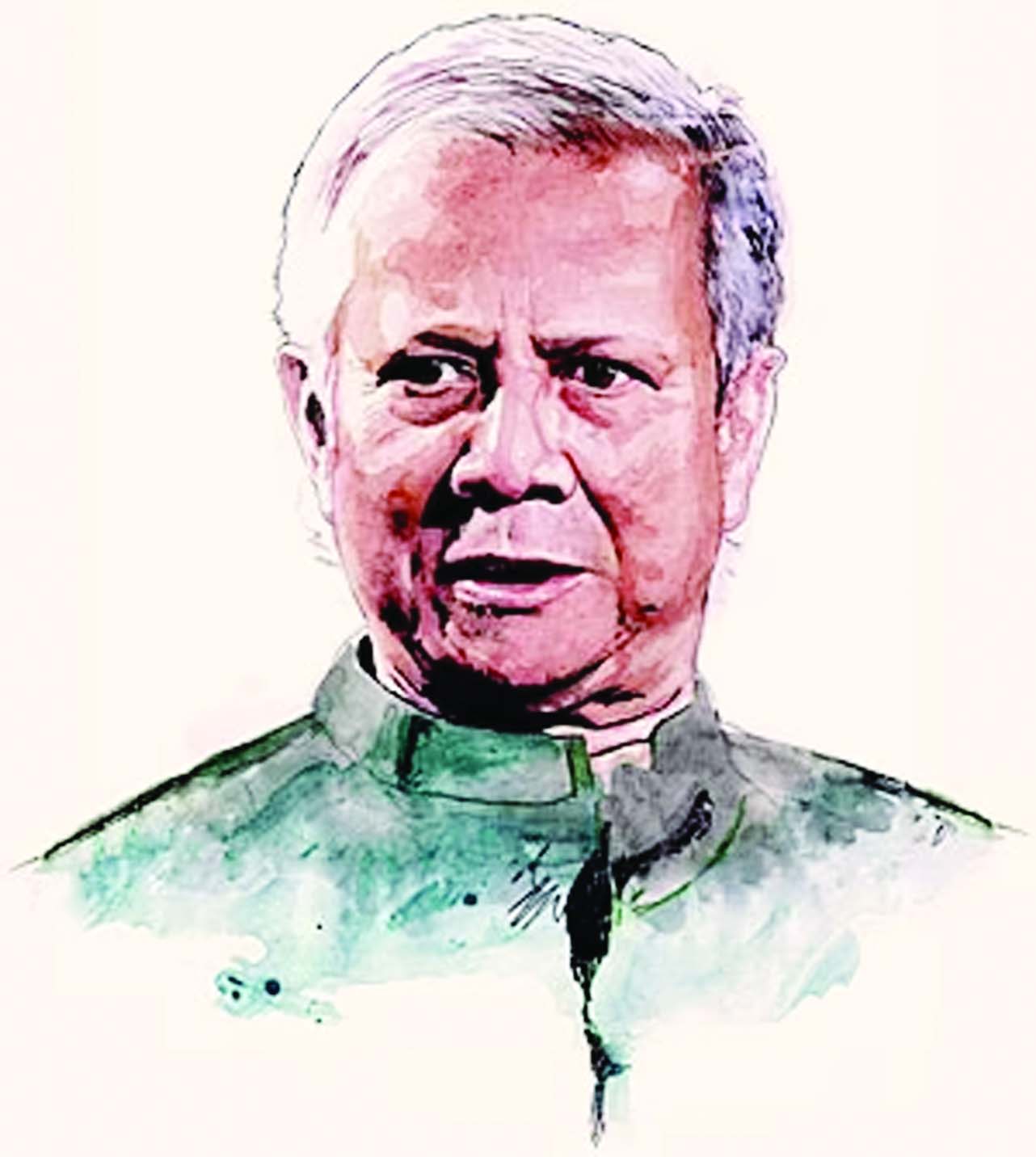Yunus rises as indomitable unifier in political crossroads

Abu Jakir :
In a country long dominated by dynastic politics and ideological divisions, Nobel Peace Prize winner Professor Muhammad Yunus is emerging as an unexpected national figurehead – and perhaps, a future head of the Bangladesh government.
Now serving as Chief Adviser to Bangladesh’s interim administration, Yunus, famed for founding Grameen Bank and pioneering microfinance, has seen a remarkable surge in domestic popularity.
Once hailed primarily on the global stage, he is increasingly viewed at home as a symbol of stability, dignity, and reform.
Originally appointed to oversee the transition to general elections, Yunus’s neutral leadership has surpassed expectations, igniting a nationwide conversation: Should the revered economist serve as Prime Minister for a full five-year term?
Since assuming office, Dr Yunus has made significant diplomatic strides. At the recent BIMSTEC Summit in Thailand, he secured Bangladesh’s rotating chairmanship and held key bilateral discussions with Indian Prime Minister Narendra Modi.
Talks addressed the renewal of the Ganges Water Treaty, Teesta water-sharing, border issues, and the pending extradition request of former Prime Minister Sheikh Hasina.
These efforts have resonated with the public – particularly younger citizens – who are weary of political unrest and drawn to Yunus’s international stature and non-partisan approach.
“The people of Bangladesh see Dr Yunus as someone who can uphold the country’s interests with dignity on the international stage,” said Sarjis Alam, a prominent student leader.
Domestically, Yunus’s administration is making cautious but promising progress. In a diplomatic breakthrough, Myanmar has identified 180,000 Rohingyas eligible for repatriation – the first sign of momentum in a crisis that has burdened Bangladesh for years.
Writer and activist Pinaki Bhattacharya believes this marks a turning point. He argues Yunus’s leadership has brought visible economic stability and reinvigorated national purpose.
Bhattacharya has floated a proposal for an extended transitional government that includes representatives from all major opposition parties – including BNP, Jamaat-e-Islami, Islami Andolon, Gono Odhikar Parishad, and leftist groups. He envisions a proportionally distributed cabinet, led by Yunus, with BNP’s Tarique Rahman as Deputy Chief Adviser.
“Yunus brings credibility; others bring grassroots strength,” Bhattacharya said. “Together, they can redefine governance in Bangladesh.”
Social media has become a loud amplifier of public sentiment. A growing number of citizens are calling for Yunus to remain in leadership, even suggesting a national referendum to determine his future role.
“Don’t include me when you say people want voting rights,” one user posted. “For now, I want Dr Yunus as the head of state.”
While Yunus has confirmed that general elections will be held by June, the rising popularity of his leadership has led many to question whether his term should be extended – not as an unelected caretaker, but as an elected statesman.
Not all are in favour of extending his tenure. Civil society leader Badiul Alam Majumdar of SHUJAN praised Yunus’s leadership but warned against undermining constitutional norms.
“Professor Yunus is a respected and capable leader. But prolonging his time in power outside an electoral mandate could set a dangerous precedent,” he said.
Yunus’s growing popularity is a development few anticipated in the fractured world of Bangladeshi politics. For now, he walks a fine line – balancing global responsibilities with domestic expectations, all while steering the country toward promised elections.
Yet, as calls for longer-term leadership intensify, it remains to be seen whether Professor Yunus’s role in Bangladesh’s future will end with this caretaker government – or whether it has only just begun.
